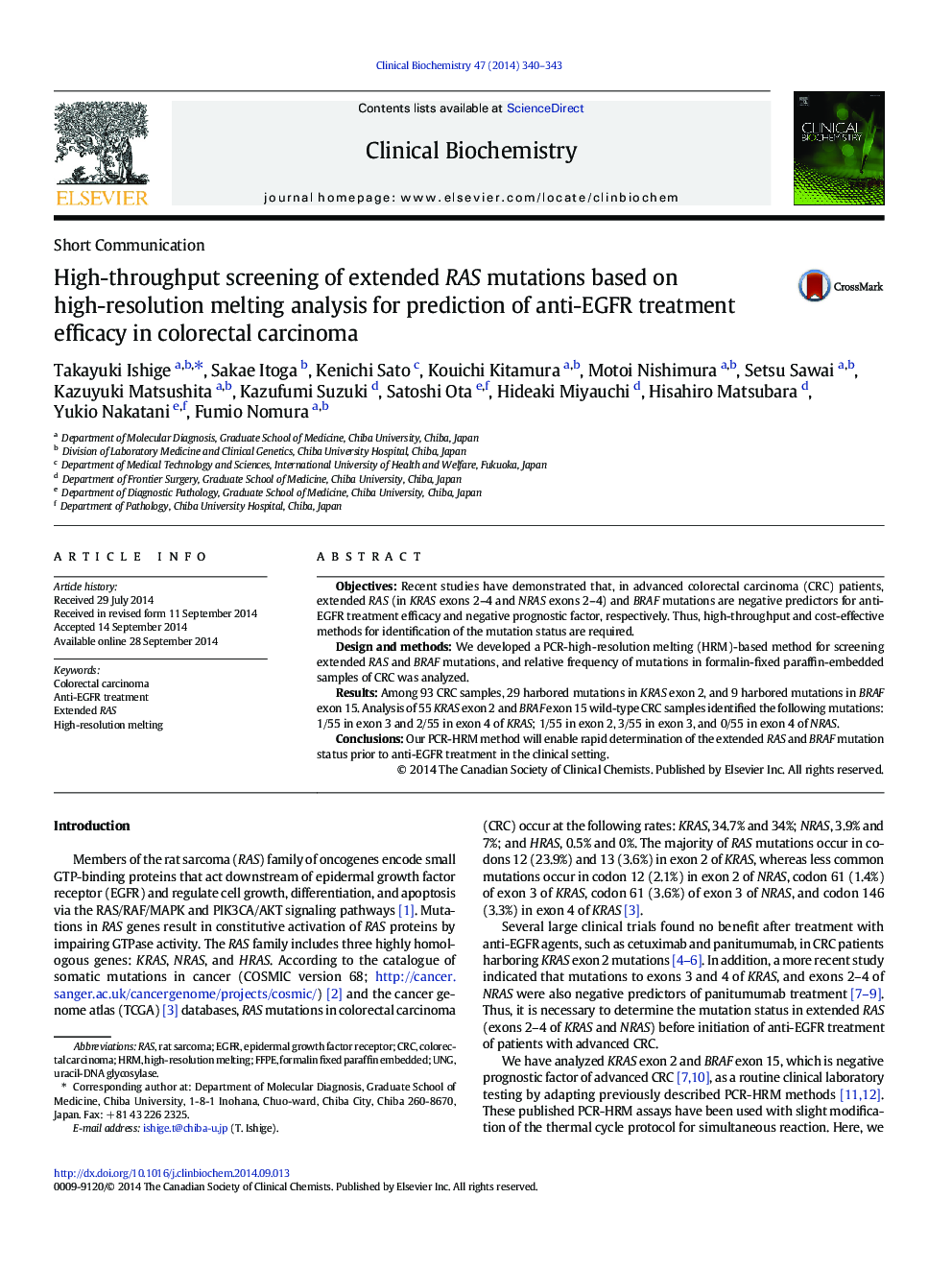| Article ID | Journal | Published Year | Pages | File Type |
|---|---|---|---|---|
| 1968929 | Clinical Biochemistry | 2014 | 4 Pages |
•We developed a PCR-HRM based extended RAS mutation test.•Mutations in KRAS exon 2 were observed in 29 of 93 CRC samples.•Other RAS mutations were observed in 7 of 64 KRAS exon 2 wild-type CRC samples.
ObjectivesRecent studies have demonstrated that, in advanced colorectal carcinoma (CRC) patients, extended RAS (in KRAS exons 2–4 and NRAS exons 2–4) and BRAF mutations are negative predictors for anti-EGFR treatment efficacy and negative prognostic factor, respectively. Thus, high-throughput and cost-effective methods for identification of the mutation status are required.Design and methodsWe developed a PCR-high-resolution melting (HRM)-based method for screening extended RAS and BRAF mutations, and relative frequency of mutations in formalin-fixed paraffin-embedded samples of CRC was analyzed.ResultsAmong 93 CRC samples, 29 harbored mutations in KRAS exon 2, and 9 harbored mutations in BRAF exon 15. Analysis of 55 KRAS exon 2 and BRAF exon 15 wild-type CRC samples identified the following mutations: 1/55 in exon 3 and 2/55 in exon 4 of KRAS; 1/55 in exon 2, 3/55 in exon 3, and 0/55 in exon 4 of NRAS.ConclusionsOur PCR-HRM method will enable rapid determination of the extended RAS and BRAF mutation status prior to anti-EGFR treatment in the clinical setting.
